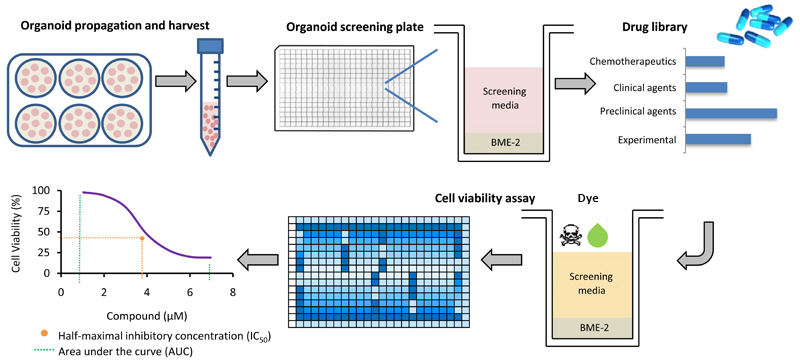Drug screening is a method of obtaining hit drugs. However, when conducting drug screening for drug discovery and development, a large amount of time and money must be spent to obtain clinically approved drugs. In order to obtain a single approved drug, thousands of compounds need to go through several screening stages. Even after the long and costly process to identify lead compounds and generate optimized derivatives, about 80% of drugs fail in clinical trials.
Traditionally, drug screening is based on immortalized cell lines, starting with two-dimensional (2D), dissociated cell cultures. However, 2D cultures are inaccurate because they lack the cell diversity, organization, and mechanical and chemical signals inherent in three-dimensional (3D) biology. Therefore, the complexity inherent in cell physiology, especially pathophysiology, may be absent. This may mask unanticipated toxicity and even exacerbated efficacy when the same treatment is trialed in humans, leading to wasted resources.
Recent advances in 3D culture technology have enabled embryonic stem cells and adult stem cells to exhibit their extraordinary self-organization characteristics. The resulting organoids possess the ability to self-assemble, self-renew, and differentiate, ranging in size from micrometer to millimeter scale, which may overcome the limitations of conventional cell culture systems. By mimicking the microstructures and biological functions of target organs, organoids complement or improve upon current multi-scaled drug-testing platforms including cell platforms, in vitro molecular assays, and in vivo models, as well as modelling human organ development and various pathologies in a dish. The technology is currently being extended to develop multi-organ models that can accurately control multicellular activities, extracellular matrix (ECM) compositions, architectural organizations of ECM, and spatial distributions of cells.
 Figure 1. A schematic of the organoid drug screening workflow.
Figure 1. A schematic of the organoid drug screening workflow.
Organoid cultures can simulate clinically relevant drug response. Therefore, it should be possible to develop new therapeutics more effectively by conducting drug screening assays in a larger and more representative collection of organoid cultures. OrganoLab has established an ex vivo organoid-based platform for drug screening assays. We provide details on assay design, protocols for organoid cultures, and parameters used to evaluate assay quality.
Online Inquiry
